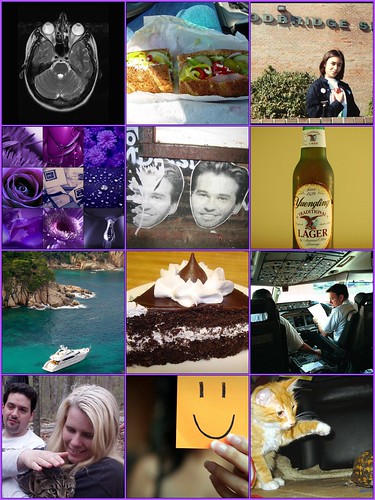
Pop quiz: only one question and it’s multiple choice.
What would make me happy?
a) winning the lottery
b) my loved ones truly appreciating me
c) a lifetime supply of chocolate
d) my neocortex
Happiness, and unhappiness, are actually pretty simple, but they’re not caused by circumstances like most people think. In fact, studies have shown that people who win the lottery and people who are involved in accidents that leave them paralyzed both return to their earlier level of happiness within a year.1 So what’s the deal?
Unhappiness is caused by fear. It comes from the brain stem, the part of the brain that we share with reptiles. This is the part that handles the fight or flight response in a dangerous situation. It’s helped by the amygdala, which we share with other mammals. It’s the center for bad memories and recognizing patterns that indicate danger. It also triggers the release of stress hormones, including adrenaline and cortisol.
All of our unhappiness, including the obvious fear and less obvious forms like anger, stems from fear and originates in these two parts of our brain. It boils down to two fears: fear of not having enough, and fear of not being enough.
Consider the things that bother you, and you’ll see what I mean.
- Money worries? That’s the fear of not having enough.
- Angry when someone cuts you off in traffic? That could be fear of not having enough (life) or fear of not being enough (considering yourself disrespected by the other person’s rude behavior).
- Trouble with your spouse or kids? Again, this is either fear that they don’t love you enough or that you’re not good enough to deserve their love.
- Stressed at work? It’s probably the fear that you’ll get fired (not having enough) or you can’t do the job (not being enough).
But how can we get rid of all this fear if it’s hardwired into our brains?
We have another area of the brain that can override the fear centers: the neocortex. This is the part of the brain that’s responsible for reasoning, long-term memory, and the human spirit. It’s where love resides, and it has the power to override the fear from the lower systems and say “calm down, everything will be ok.”
The antidote to fear is appreciation and altruism. When I wrote earlier about gratitude, I didn’t know the scientific basis for any of this, but I did know from experience that focusing on gratitude was the quickest way to be happier. Now I know why.
When you focus on gratitude or appreciation, it overrides your fear circuits. It’s impossible for your brain to focus on gratitude and fear at the same time, so by focusing on gratitude, you block the flow of fear and enable yourself to be happy.
Aside from the basic gratitude exercise of listing five things you’re grateful for every day, there are other exercises you can do. A few times a day, pause for a minute or two and focus on one thing that really brings you joy, such as someone you love, a favorite song, the way sunshine feels on your face, a favorite memory, or even just something as simple as ice cream. Focus on whatever you pick, imagine it with as many senses as you can, and recreate in your mind the way it makes you feel. Think about how grateful you are for it.

Another exercise that can help you focus on appreciation and override fear is making top five lists. Instead of just a generic list of the top five things you’re grateful for right now, you can think of the top five best books you’ve ever read, the top five favorite things you like to do, the top five people who mean the most to you. The more different ones you come up with, the better.
One more useful exercise is looking for the good in your situation. What’s going right in your life? What part of your situation could be seen as a gift or a blessing? How are you lucky to be where you are? How does your situation benefit you or others? Even in the midst of a terrible situation, there are always bright spots, no matter how tiny. By looking for them, focusing on them, and bringing out the gratitude, you can comfort yourself and improve your outlook.
If you find yourself feeling anxious, lonely, grumpy, or unhappy in any other way, turning to appreciation is the quickest way to head off these feelings. I don’t mean you’ll never be sad or you shouldn’t be upset when something bad happens. But if you want to get out of a funk or keep yourself from overreacting to a situation, try using these exercises as tools. They really help.
If you want more detail about how the brain participates in happiness and unhappiness, I got this information from What Happy People Know: How the New Science of Happiness Can Change Your Life for the Better, which is a great book that brings together nearly everything else I’ve read about happiness and positivity, all in one handy, well-organized, and uplifting reference. It is awesome.
1 Brickman P, Coates D, Janoff-Bulman R. “Lottery winners and accident victims: is happiness relative?” J Pers Soc Psychol. 1978 Aug;36(8):917-27.

I loved your post. I agree with everything you have said. I have been in a very happy place in my life since the past year. I would go as far as to say that 2010 has been the best year of my life, since past 8 years or so. I have come to terms with some deeply personal dilemmas, acheived so much in this year alone, that everyday I wake up full of gratitude for my life, my family, my friends and for being me. Thanks for letting me remember all this. Cheers 🙂
I’m so glad to hear that! Here’s to more, even better, to come! 🙂
“It boils down to two fears: fear of not having enough, and fear of not being enough.”
This is so, smack bang, dead on the money it’s… well scary, Cara. In my own experience, I detect 5 flavours of fear. You can read about them here, if you like:
http://www.theartofaudacity.com/the-five-fears/
But essentially, I think your expression of it is the most concise and elegant I’ve ever seen. I agree with almost everything you said in this article. Fear is most certainly not in our circumstances, it is in our mind. Where I tend to differ is that I don’t believe that the mind equals the brain and so I’m fairly dismissive of purely physiological explanations of emotions. They are closely linked of course, but consciousness surely goes far deeper than that.
Great article, I added you to my reader 🙂
You should also get points for being one of the few bloggers to properly cite and reference her data 🙂
Thanks!!
Interesting point about brain vs. mind–I’ll have to think about that some more.
Your post about the five fears absolutely rocks. You’re two for two in saying exactly what I’m thinking but better than I say it! My hat’s off to you!
Hi Cara, I keep an Appreciation Stone in my wallet. Each time i add change or take out change, I touch it and appreciate something. Thanks for the suggestions. I will add them to that practice. Karla
Karla, I love the idea of the appreciation stone. I’ll have to add that to my bag of tricks. 🙂
Glad you enjoyed the post! Thanks!